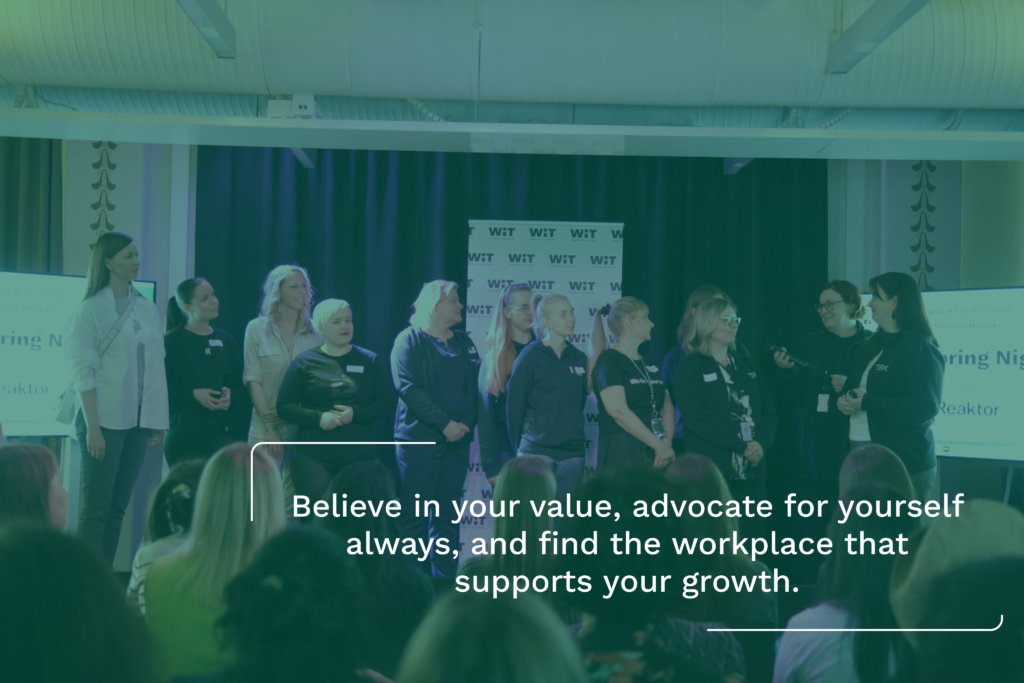
The latest Women in Tech Mentoring Night welcomed to the stage three inspiring speakers, who shared not only their experience about their career in tech, but also important data and advice that contributes to the conversation of more and more women pursuing careers in tech.
Tamara Glasbergen, Senior Software Developer at Reaktor, shared with the audience how fulfilling it felt for her to change fields. ‘I don’t regret not ending in the tech field sooner’, Tamara said, ‘because all my previous experiences provided me with important knowledge and wonderful memories, but, I have to tell you: it got boring –and that’s when I knew: tech is such a fast paced environment, no day is the same. It was a very welcomed challenge’.
Tamara reflected on the reasons that prevented her from stepping onto her curiosity and growing her passion for tech: she believes that the fact that there weren’t a lot of role models in the field, strengthened her bias of ‘Women cannot do a career in tech’.
‘Already from the beginning, in my studies, we were only three women out of 180 students’, she recalled. Knowing that she was skilled, but seeing how she didn’t get the same validation as her male peers, felt like running against the tide, until luckily this started shifting as she found other women who had had similar experiences, and who acted as a true network of support and encouragement.
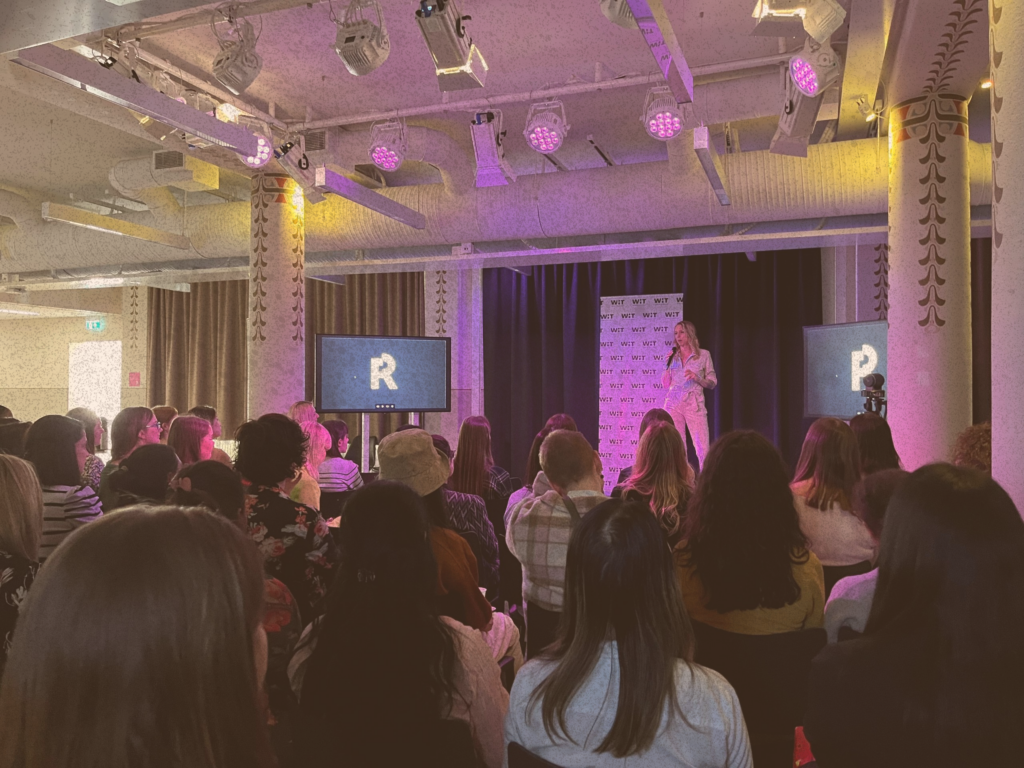
Tamara Glasbergen, Senior Software Developer at Reaktor
Indeed throughout her career, Tamara has found strength in the support of female peers in tech who have validated her experiences, yet also, she shared with the audience another key point that has contributed to her self-confidence: ‘There is a very uncomfortable work that I find necessary to do’, she said. ‘It is the work of getting to know yourself. Who are you? What are your values? Only when you find that, you learn to never compromise on those. I can negotiate a salary, a contract, but I will never negotiate my worth’.
Following these great words came a great question from the audience: How to deal with sexism in the workplace, especially when it comes from female colleagues? Tamara was very clear, ‘When you land a job, check the culture of the company beforehand. How are you gonna fit within the team? How are they gonna take care of you? If you go for the job and along the road you’re not valued, and you find values that don’t align with yours, get out, find the place that will see your skills. It exists, and it is out there. If you can’t, because sometimes it is not that easy, have one-on-one conversations in a nonviolent communication style. Take that person for lunch, make them hear your voice’.
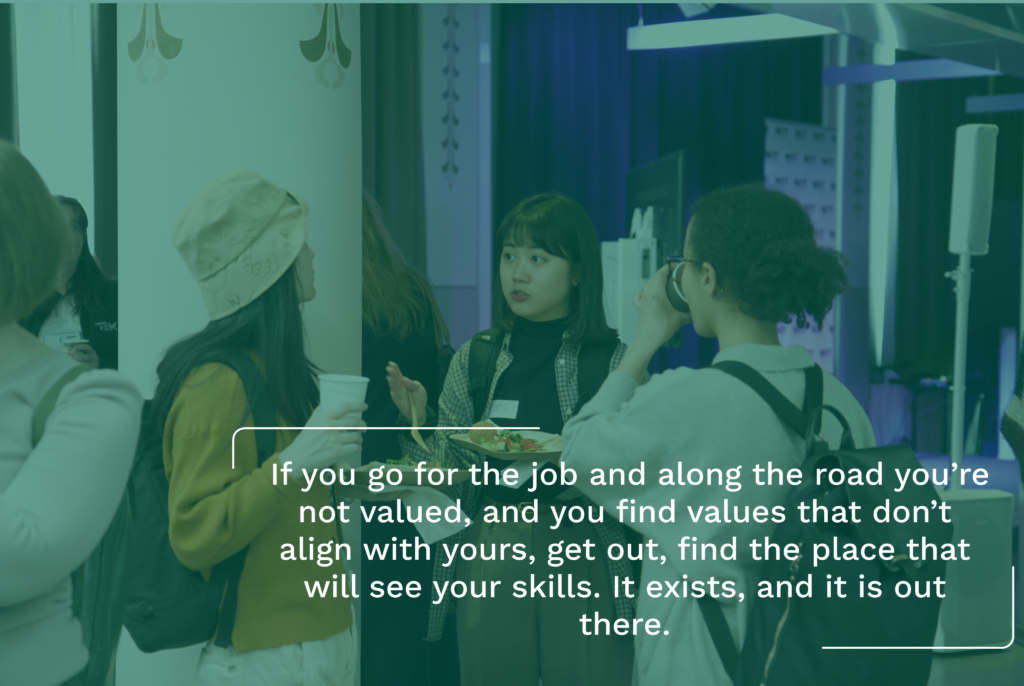
Following Tamara’s wonderful words of encouragement, the second guest speaker of the evening was Hannele Räsänen, Head of Payments and Cash Management Analysis at Nordea Technology.
‘What I think is the most interesting about working in Nordea Technology is the people we have’, Hannele said. ‘We are around 4000, and we have 98 nationalities. Also, our female quote in Tech is 28%, which is above the industry average. I think this is great’. Nordea Technology has five different technology capabilities: an engineering system that sets up development environments, builds and deploys jobs, automates them, and coordinates them. They also work with software developers –front end developers, integration, and back end developers, as well as with QA and testing, assuring that before putting systems into production, they are error-free.

Hannele Räsänen, Head of Payments and Cash Management Analysis at Nordea Technology
Hannele talked to the audience about her first year in economics. Back then a developer and application advisor, she referred to it as the best year of her life. ‘I allowed myself to make a lot of mistakes back then’, she said. ‘When I was coding, many times I had to call our operations people and they had to kill my code. Many, many times –this means, many hours of lost work. And that taught me two things: first, to save, save, and save everything you do, but secondly and most importantly: how important it is to have a work community’. Looking back, Hannele reflected on how essential it was for her to have mentors who guided her in her learning journey. ‘Having mentors meant I was always able to ask all kinds of questions, and I always felt supported’.
Hannele gave two important pieces of advice to those starting their career in tech. The first one came in the form of a question: ‘How will you ever learn if you don’t ask questions?’ –and the second one, ‘Keep up curiosity always. You might be surprised that something you learned a long time ago becomes useful at some point down the road’.
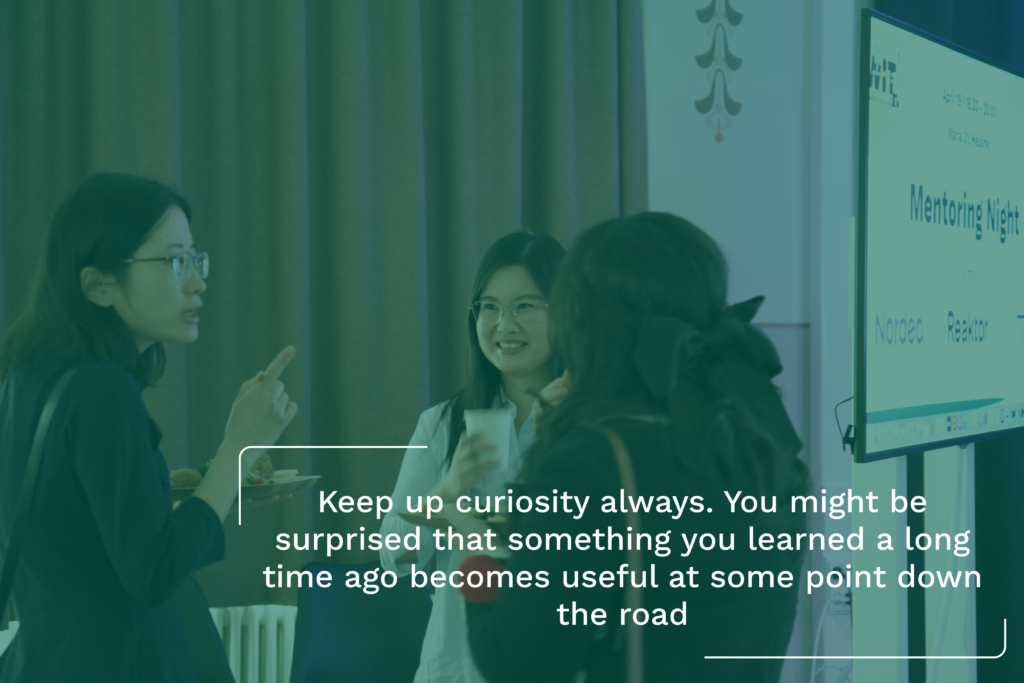
The last speaker of the evening was Susanna Bairoh, Research Manager at TEK. After conducting an annual survey on TEK’s students’ expectations around a career in tech, Susanna discussed with the audience the results to the question: What do women and men expect from their careers in technology? The most important expectation was interesting work, followed by
being able to maintain a good work-life balance in their career. Although these expectations were more or less equal in men and women, the expectation of ‘wanting to progress in their career’ was more present in men: women were far less vocal about it.
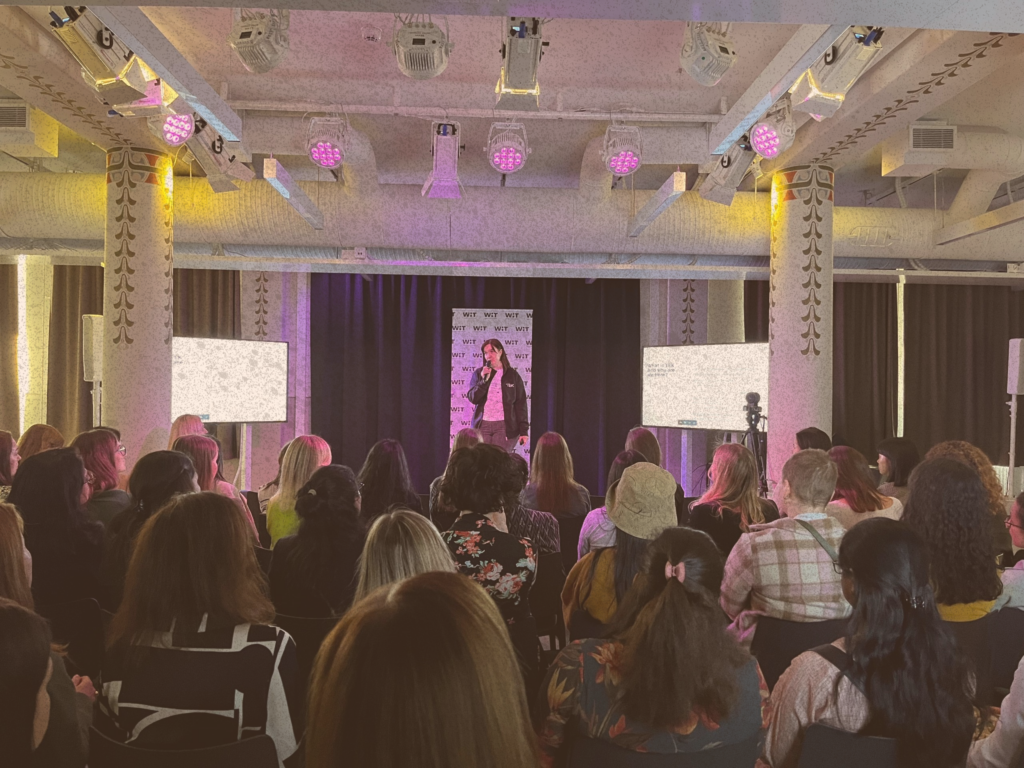
Susanna Bairoh, Research Manager at TEK
If student women are less vocal about climbing up the ladder, what happens then in reality, when they are already in the working field? Susanna showed that from TEK’s recent studies, a very similar percentage of men and women are quite happy with their jobs in tech. However, once again, men are more confident in having the right skills to succeed than women. Men are also more secure in feeling that they belong in the tech field, whereas women do not feel as seen, or as valued.
One fundamental reason for this, Susanna explained, is the striking fact that in Finland, women occupy 30% of the expert duties in tech. Yet as they climb up the career ladder, only 10% of women occupy top management positions. This raises questions, and definitely room for improvement, yet Susanna ended on a positive note: we need more women in tech, and we have them –the percentage of women studying technology and ICT has definitely increased in recent years. To all of them, she said: believe in your value, advocate for yourself always, and find the workplace that supports your growth.
